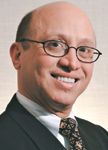- Acne
- Actinic Keratosis
- Aesthetics
- Alopecia
- Atopic Dermatitis
- Buy-and-Bill
- COVID-19
- Case-Based Roundtable
- Chronic Hand Eczema
- Chronic Spontaneous Urticaria
- Drug Watch
- Eczema
- General Dermatology
- Hidradenitis Suppurativa
- Melasma
- NP and PA
- Pediatric Dermatology
- Pigmentary Disorders
- Practice Management
- Precision Medicine and Biologics
- Prurigo Nodularis
- Psoriasis
- Psoriatic Arthritis
- Rare Disease
- Rosacea
- Skin Cancer
- Vitiligo
- Wound Care
Article
'Now they are taxing my cosmetic procedures. How can this be legal?'
Legislatures have broad discretion in levying taxes to raise public funds. Legislatures also have great freedom in the area of which professions they seek to tax.

Since his office is in a town bordering his state line, he is concerned that his patients will seek cosmetic treatments with his competitor only two miles away in a state where there will be no such cosmetic tax. Dr. Filler is aware that the state of New Jersey has such a cosmetic tax. However, he cannot believe that such taxation is legal. He wants to fight the proposed legislation and seeks legal help. Does he have a chance to legally fight such a law if it is enacted?
It should be noted that legislatures have broad discretion in levying taxes to raise public funds. Legislatures also have great freedom in the area of which professions they seek to tax. The United States Supreme Court ruled in 1975 that a state may impose different specific taxes upon different trades and professions and may even vary the rate of taxation on different products. In fact the Court ruled that legislatures do not even need to maintain "precise scientific uniformity with reference to composition, use or value" of such a tax system. Thus, the Supreme Court has provided a judicial precedent that leads to deference to state legislatures allowing them to tax cosmetic, or in fact, any medical procedures.
An analysis of the Supreme Court's view on state sales taxes for cigarettes may illustrate their view on cosmetic medical taxes.
The Court has held that taxation can occur for a variety of motives. One motive in taxation is, of course, the raising of funds for which the legislature is given very broad discretion. The other motivation, certainly applicable in the case of both alcohol and cigarettes, is to deter their use.
The view of the Supreme Court has also been shared by state courts. New York courts have ruled that it is not within their province to examine whether legislators have ulterior motives in their choice of whom to tax and why. As long as the motives are "reasonable," the tax cannot be challenged.
Thus, it would appear that, with respect to raising revenue, and perhaps deterring cosmetic procedures, the courts have given state legislatures wide latitude. Therefore, a legal challenge of the proposed cosmetic tax by Dr. Filler is unlikely to succeed unless he can show that the legislators had some sort of illegitimate motive.
The next obvious question is whether state legislators should tax cosmetic procedures.
Dissuasion at work?
Despite taxes being placed on cigarettes and alcohol, most foods and beverages are not taxed.
Comparing alcohol and cigarettes to cosmetic surgery raises an obvious question. Does cosmetic surgery warrant taxation for deterrent purposes? Is cosmetic surgery similar to alcohol and cigarettes? Would taxation even lead to deterrence?
The last question is probably the easiest to answer. Since cosmetic procedures tend to be quite expensive, it is unlikely that a 5 percent to 7 percent tax on patients who can already afford such procedures will have any deterrent effect at all.
In terms of equating cosmetic surgery to alcohol and cigarettes, there are those in government that argue that there are substantial risks to cosmetic surgery and therefore an analogy can be made to alcohol and cigarettes. However, the counter argument is that alcohol/cigarette use and abuse has a profound deleterious effect on others who interact with individuals using these products. This deleterious interactive effect is distinctly unlikely with those individuals seeking cosmetic treatments.
In the end, Dr. Filler's best chance is to convince his legislators that the added value of the cosmetic tax will be outweighed by the lost state revenues that will be seen if his patients go across state lines for treatment where there is no tax. Once the cosmetic tax is enacted it is unlikely that any court will overturn it.
Dr. Goldberg is the director of SkinLaser & Surgery Specialists of New York and New Jersey; director of Mohs surgery and laser research, Mt. Sinai School of Medicine; and adjunct professor of law, Fordham Law School.
Newsletter
Like what you’re reading? Subscribe to Dermatology Times for weekly updates on therapies, innovations, and real-world practice tips.











